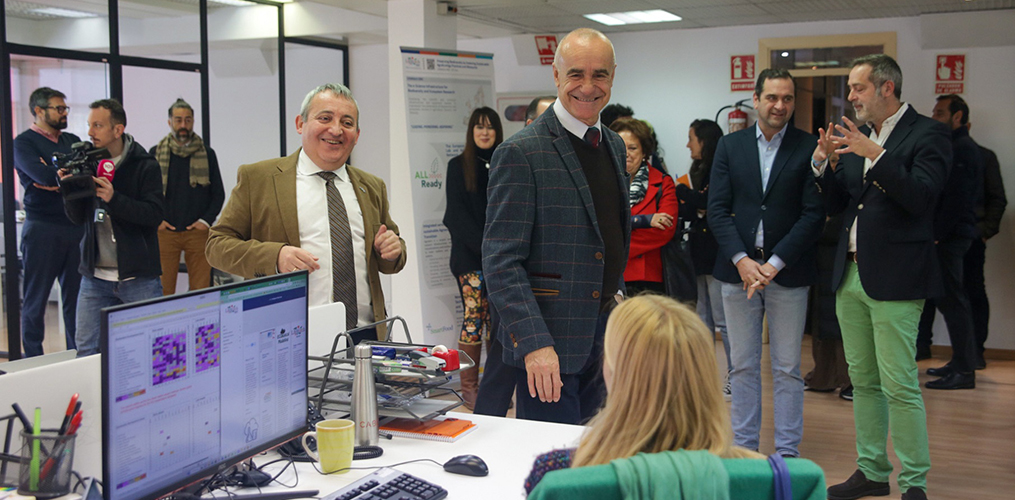
On 14 February, the mayor of Seville, Antonio Muñoz, visited the LifeWatch ERIC ICT-Core offices in the Cartuja Science and Technological Park, showing the City Council’s support for the consortium, which he describes as a “powerful ecosystem of innovation, science and research in Seville” and whose activity contributes to placing it on the map in terms of the two great challenges facing cities: the fight against climate change and digital transformation.
During the visit hosted by Juan Miguel González-Aranda, LifeWatch ERIC CTO, the mayor promised that Seville City Council will back the infrastructure in its organisation of two major international events on biodiversity in 2023. The first will be The LifeWatch ERIC BEeS Biodiversity & Ecosystem eScience Conference “Threats and challenges to biodiversity and ecosystem conservation from an eScience perspective” from 22–24 May, coinciding with the celebration of World Biodiversity Day on May 22, and will include the participation of representatives and experts from numerous countries. More information soon to come! The second will be on 5–6 July, with great European, Spanish and Latin American institutional relevance, and will be included in the programme of activities of the Spanish Presidency of the Council of the European Union during the second semester of 2023. LifeWatch ERIC last welcomed biodiversity information facilitity representatives from Spain, Latin America and the Caribbean to its Seville seat in November 2022 – click here to watch the highlights video.
Furthermore, the City Council is going to support LifeWatch ERIC in its expansion of spaces, activity and personnel, as the infrastructure is pinned as one of the organisations to participate in the new innovation and research ecosystem that the Seville City Council wants to deploy, taking advantage of the potential of the Spanish Space Agency with the configuration of the new hub and the entrepreneurship ecosystem.
LifeWatch ERIC leads numerous European programmes from its Seville seat. A notable example, by election of the European Commission, is the scientific data information technology work package for the European global programme on agroecology and agrobiodiversity, to help contribute to a green and digital revolution throughout Europe. For this initiative, LifeWatch ERIC is developing an innovative virtual research environment based on its Tesseract and LifeBlock platforms, which will support the tokenisation of ecosystem services, contributing to monitoring for Common Agricultural Policy schemes based on agroecological practices and low-carbon agriculture.